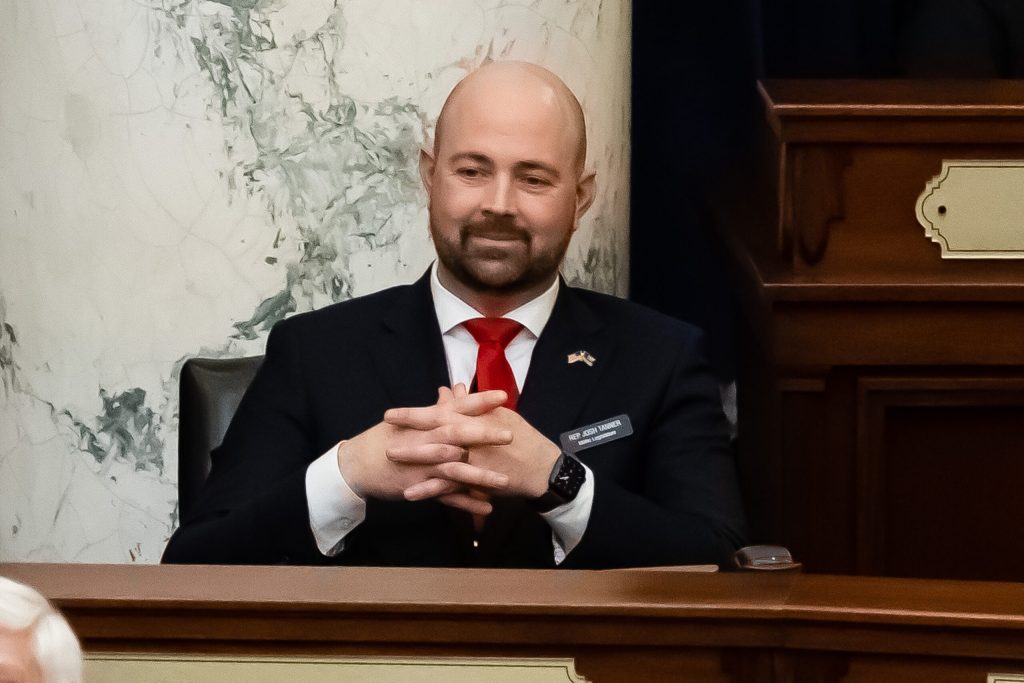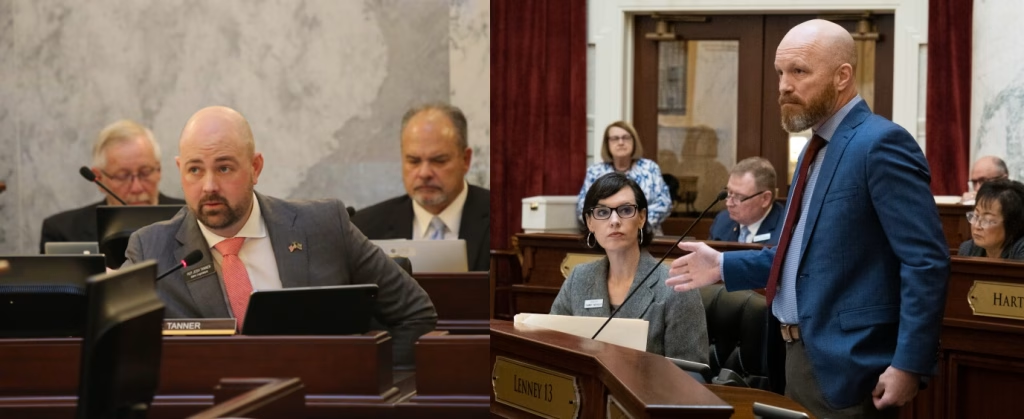
Boise – Colonel David Gunter, commander of the 366th Fighter Wing at Mountain Home Air Force Base, briefed the Legislature’s interim Committee on Federalism on Thursday, answering questions regarding the recently-announced training partnership with the nation of Qatar.
Gunter told lawmakers the agreement has been under development since 2018 and will bring a phased rotation of Qatari airmen to Mountain Home. The program is expected to begin with roughly 50 personnel and grow to about 300 by 2030, including U.S. airmen assigned to the joint squadron. All facilities built for the effort will remain U.S. property and are funded as part of Qatar’s purchase of F-15QA fighter aircraft.
He emphasized multiple times that security and vetting are the core considerations. He explained that the Department of War has well-established procedures for all foreign military personnel training in the United States, including background checks, access restrictions, and information-security protocols. Some details, he noted, could not be discussed publicly.
Sen. James Ruchti, D-Pocatello, questioned operational security and potential intelligence risks. Gunter said foreign partners are monitored under existing counterintelligence programs, but he could not discuss specifics. Ruchti also asked if Qatari dependents would face the same vetting and restrictions, to which Gunter answered yes.
Several lawmakers raised concerns about Qatar’s record and its past links to terrorism. Rep. Dale Hawkins, R-Fernwood, said his constituents are uneasy about hosting Qatari forces. Sen. Cindy Carlson, R-Riggins, said she wanted her concerns about such a partnership on the record. Gunter acknowledged the concerns but defended the program’s safeguards and described his experiences working with Qatari counterparts as professional and reliable.
Live-fire procedures also came up. Gunter said Qatari pilots will train the same way American pilots do, primarily with simulated ammunition but with some use of live flares and occasional live munitions. When Rep. Charlie Shepherd, R-Pollock, raised a hypothetical scenario in which a foreign pilot “goes rogue,” Gunter responded that the F-15QA uses a two-person cockpit and typically flies in two-ship missions, adding that he is not aware of any incident in which a foreign pilot turned hostile.
Committee co-chair Rep. Judy Boyle, R-Midvale, asked how the program benefits the United States. Gunter said the Air Force depends on allies to extend American capabilities and to ensure foreign partners can operate effectively alongside U.S. forces in future conflicts.
Some questions about off-base impacts remained unresolved. Gunter said discussions with local officials are ongoing and that he does not yet have details about potential dependents accompanying Qatari personnel. Any civilians who do arrive, he said, must pass the same vetting process and remain subject to U.S. rules. On-base incidents would fall under Air Force security personnel, while off-base matters would be handled by local law enforcement.
The program is expected to run for ten years, after which point Gunter could not speculate. After the hearing, Gunter spoke with Reps. David Leavitt, R-Twin Falls, Kent Marmon, R-Caldwell, and Lucas Cayler, R-Caldwell, and said his staff would provide contact information for any lawmakers seeking further details.

The deal to provide training to Qatari airmen was announced by Secretary of War Pete Hegseth on October 10.
Previous stories:
- Idaho Delegation Briefing Request: Qatari Air Force Facility at Mountain Home AFB
- RISCH: Demanding Answers on Qatar Agreement
- NEWS: Idahoans React to Qatari Air Force Deal
Feature image: F-22 Raptor at Mountain Home Air Force Base. Public domain. Taken by Airman 1st Class JaNae Capuno.
About Brian Almon
Brian Almon is the Editor of the Gem State Chronicle. He also serves as Chairman of the District 14 Republican Party and is a trustee of the Eagle Public Library Board. He lives with his wife and five children in Eagle.













